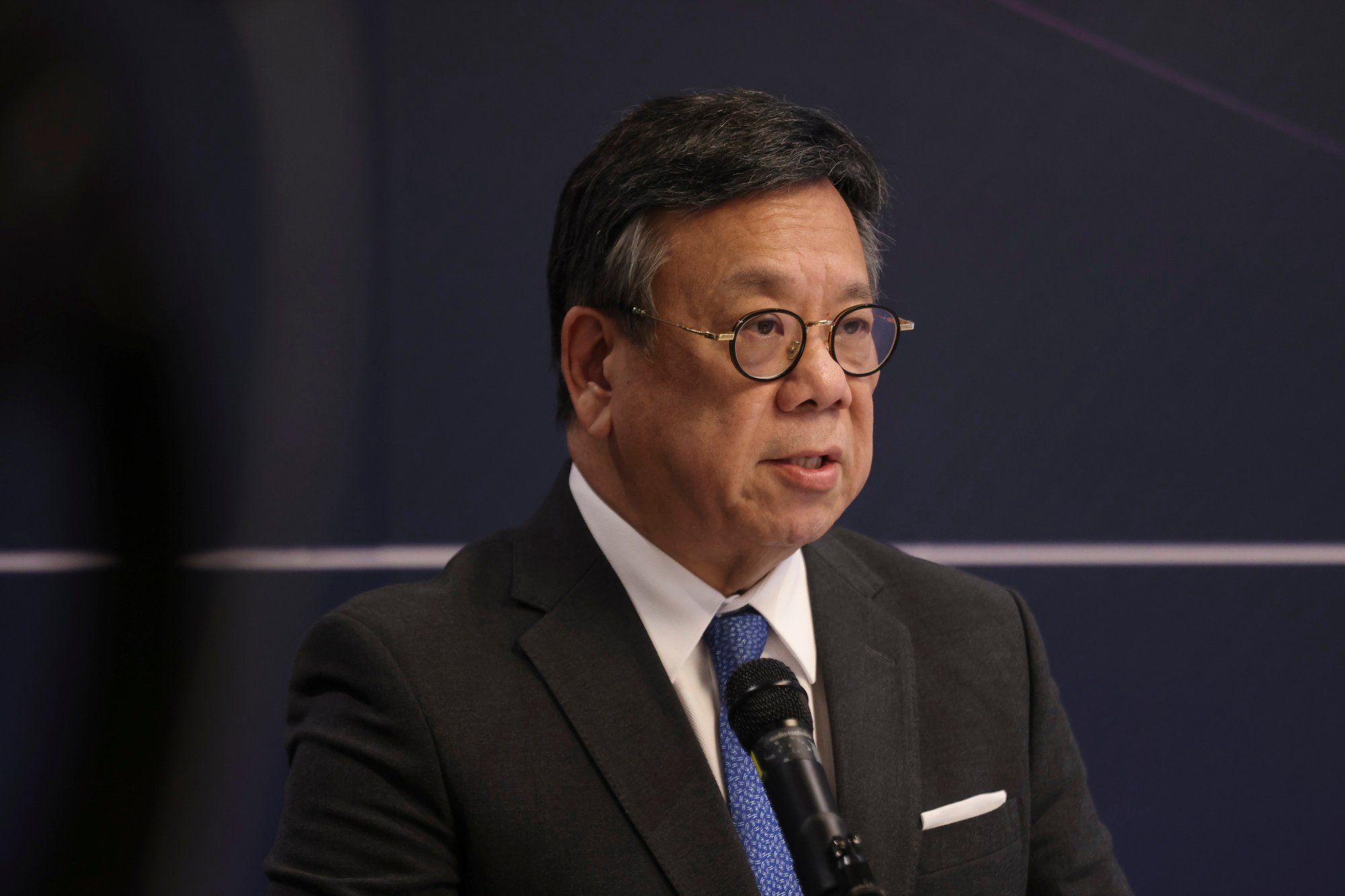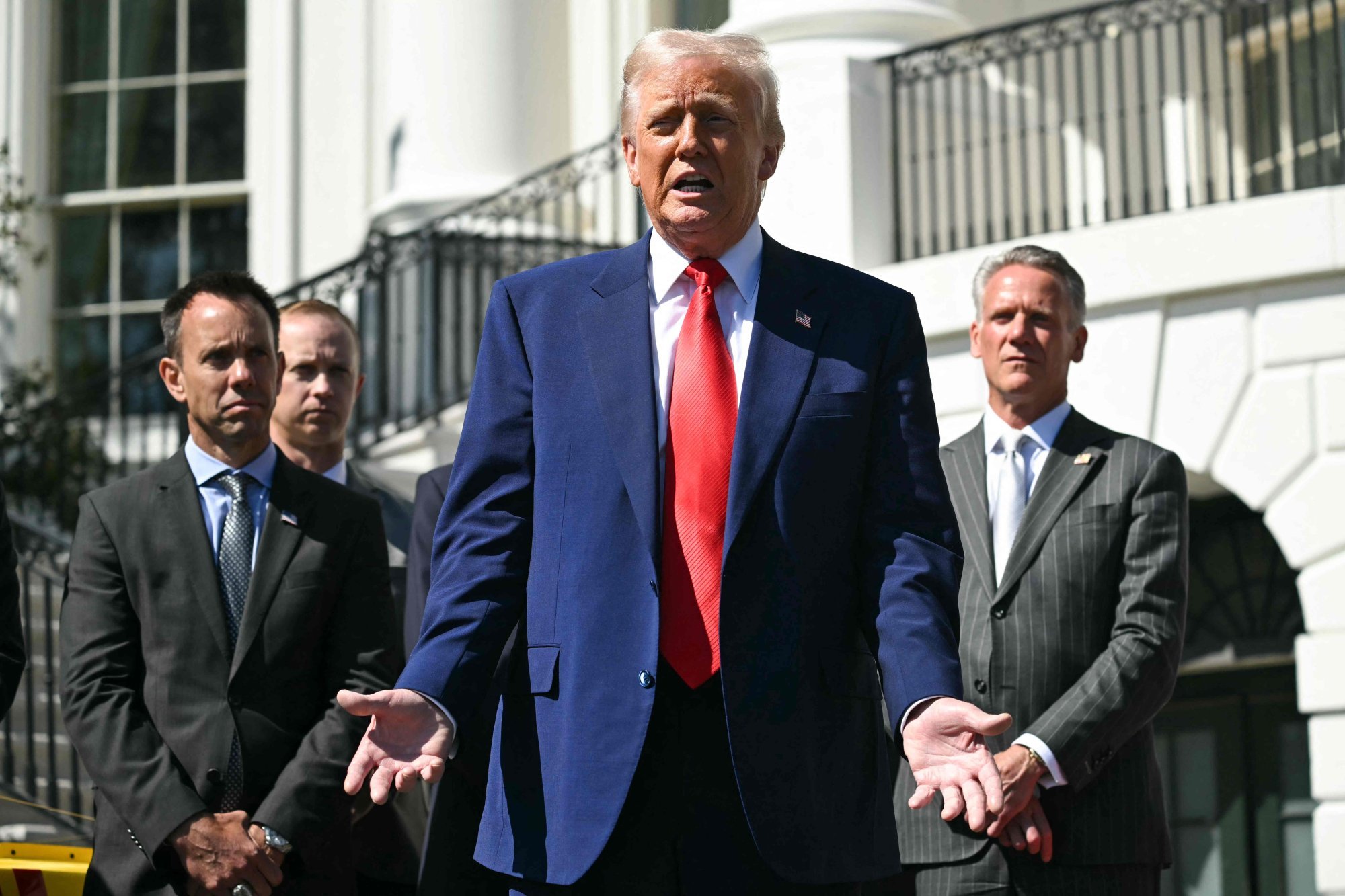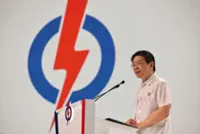
Hong Kong has prepared for the worst as the United States may shut down the city’s three trade offices there, the commerce minister has said, indicating that authorities will restructure their overseas set-up amid escalating US-China friction.
Secretary for Commerce and Economic Development Algernon Yau Ying-wah also said on Friday that Chief Executive John Lee Ka-chiu would lead a delegation along with mainland Chinese enterprises to the Middle East next month in a bid to tap the emerging markets there as well as in the Asean countries amid the intensifying geopolitical tensions.
“We will work harder to extend our international trade network, sign more trade deals with different economies and deepen our e-commerce development. We hope to help our small and medium-sized enterprises (SMEs) to go global and ride out the tough times,” he said.
Do you have questions about the biggest topics and trends from around the world? Get the answers with SCMP Knowledge, our new platform of curated content with explainers, FAQs, analyses and infographics brought to you by our award-winning team.
The minister’s remarks during a Legislative Council special finance committee meeting were made after US President Donald Trump’s latest move of further raising tariffs on small parcels sent to his country from the mainland and Hong Kong to 120 per cent from 90 per cent on Thursday.
“In the overall planning of our overseas trade offices, we’ll have a new plan to restructure our set-up in these countries or regions. We’ve done some preparation work but we cannot divulge the details at this stage,” he said.

Yau added that the government would have a new plan for the overseas offices to work with both the Trade Development Council and InvestHK to create a synergy effect in attracting foreign investors to the city. He also pointed out that the establishment of new trade offices in Malaysia and Saudi Arabia had been progressing.
The increase was announced just a day after the US administration had tripled that rate from 30 per cent to 90 per cent on small goods, which are currently exempt from duties.
“About whether the US will close Hong Kong’s three trade offices, we have prepared for the worst as to how we should redeploy our resources to respond to this happening,” Yau told lawmakers.
The city’s three trade offices in the US are currently located in Washington, New York and San Francisco.
On Tuesday, US lawmakers reintroduced a bill that could close Hong Kong’s representative offices in America if the White House determined that Beijing had undermined the city’s autonomy, an effort that failed in the previous congressional session.
In response, Beijing urged the US lawmakers to “pull back from the brink”, vowing retaliation if the proposal progressed any further.

According to an amendment on so-called reciprocal tariffs published by the White House on Thursday, Hong Kong time, the new rate on shipments priced up to US$800 will be 120 per cent of their value, up from the planned levy of 90 per cent.
The per postal item fee will be raised to US$100 from the earlier US$75 after May 2 and US$200 from the planned US$150 after June 1.
Washington earlier accused Chinese online marketplaces such as Temu and Shein of taking advantage of the “de minimis” loophole to send goods to the US duty-free.
Last week, Trump announced the de minimis trade exemption under a rule dating back to the 1930s – a reprieve from import duties for packages from the mainland and Hong Kong valued at US$800 or less – would cease on May 2.
Trump also clarified that the tariff rate on Chinese imports had risen to 145 per cent, up from the 125 per cent figure communicated on Wednesday.
The higher figure comprises the 125 per cent rate that covers the so-called reciprocal duties announced by Trump, as well as a 20 per cent rate imposed earlier this year over China’s involvement in fentanyl trafficking.
The Hong Kong government has called the imposition of the “reciprocal tariff” on the city an act of bullying by the US to suppress its competitors, adding it would review the situation closely and take measures to safeguard Hong Kong’s rights, including filing complaints with the World Trade Organization (WTO).
Meanwhile, Secretary for Transport and Logistics Mable Chan Mei-bo told local media on Friday that the government had plans to address the impacts arising from the tariff war between Washington and Beijing, which created uncertainties for Hong Kong’s logistics and shipping sectors.
She mentioned that authorities would expand the city’s port network, adding she would promote the city’s port services in Chongqing.
Authorities would also consider streamlining customs procedures to improve transshipment efficiency and attract more transshipment cargo, she said.
More from South China Morning Post:
- Trump triples tariff to 90% on small parcels from mainland China, Hong Kong
- Why Trump’s axing of ‘de minimis’ rule is no small thing for Hong Kong exporters
For the latest news from the South China Morning Post download our mobile app. Copyright 2025.








































